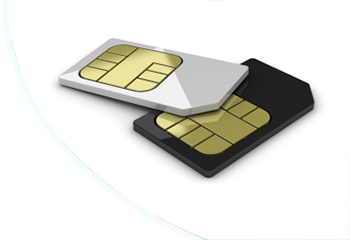What is data roaming?
Data roaming is the act of using your mobile data to access the internet while you’re abroad. Technically, it works much the same as it does in the UK with your smartphone or tablet automatically connecting up to a local provider as soon as you arrive so you're able to browse the web as normal pretty much straight away.
Financially however, it’s a vastly different story. The fact that you’re using a version of a network that’s slightly different to your own (Vodafone Spain over Vodafone UK for example) means that you’ll incur a huge charge for doing so, significantly higher than anything you’d expect to pay back home in the UK.
Data roaming charges
How much you’ll end up paying for your data roaming charges massively depends on just what you're doing online and which country it is you're visiting.
A data heavy activity like using FaceTime will obviously use up way more data than simply checking your inbox would and thanks to a number of rulings that’ve been passed in the last few years, any data roaming charges that you rack up within the EU will generally be considerably less than any charges you’d incur outside of it.
Britain’s mobile phone networks have introduced a number of different measures which have been designed to help prevent you from running up massive data roaming charges both inside and outside of the EU.
Providers like EE offer what’s known as add ons, little packets of extra data which you can purchase to use abroad. You’ll be notified when they’ve run out and won’t be able to access the internet again until you’ve either purchased more or connected to local wi-fi.
There’s also several variations on Vodafone’s WorldTraveller pass available across the different networks which allow you to use your normal contracted amount of mobile data abroad (along with minutes and texts) for a small set fee per day.
European data roaming
Although Iceland, Liechtenstein and Norway aren’t normally a part of the EU, they are included in any price cap or reduction that the EU issues regarding data roaming charges to all its members.
Back in 2010, a €50 monthly cap (which amounts to about £42.15) was introduced on European data roaming charges. Once you reach 80% of your limit you’ll get a reminder and once you reach 100% your internet access will be cut off entirely.
Then in 2016, the EU introduced a new law which slashed European data roaming charges from a cost of 17.4p for every MB of data used to just 4p per MB of data used.
Last year the ruling was amended again to state that as of June 2017, there will no longer be any data roaming charges across the whole of the EU. You’ll be able to use your usual amount of contracted mobile data like you normally would and use everything from Facebook and Instagram to Google Maps and TripAdvisor without worrying about running up a huge bill.
However, this will only be applicable to UK residents up until we officially leave the EU in 2019, after which it’ll be up to the government to negotiate some kind of deal that’ll prevent any UK citizen from being hit with exorbitant data roaming charges within any EU country.
International data roaming
In the majority of cases, it’s true that international data roaming charges will be considerably higher than the data roaming charges you’d find within the EU.
Vodafone’s EuroTraveller pass for example allows you to use your contracted amount of mobile data for just £3 a day, but outside the EU on their WorldTraveller pass this fee is raised to £5 a day.
However, there are a selection of price saving measures available for you to purchase which will help to significantly reduce your international data roaming charges into a much more manageable bill.
The best of these is definitely Three’s Feel At Home package which is available on both pay monthly and pay-as-you-go contracts in 42 different countries (including Australia and the US) and allows you to use your device aboard at no extra cost.
You’ll be able to use the standard amount of data that you’ve been allotted in your contract for the same price you pay back home which really is a fantastic deal, and might actually even work out as being cheaper than anything you’d purchase to use your mobile data in an EU country.
Turn off data roaming
Aside from purchasing extra data or some kind of travel pass, a way to combat high data roaming charges is to turn it off on your smartphone completely.
It might seem like a bit of an extreme measure, but it is possible to still access the internet without it. Most, if not all, hotels offer free wi-fi and it’s also normally present in big public spaces like restaurants, cafés, airports, shopping centres and theme parks.
It’s probably not going to be powerful enough to support long Skype conversations or to stream Netflix on, but it’s perfectly serviceable for checking an online map or posting a picture to Instagram.
Another solution is to download apps that don’t require you to be connected up to the internet in order to use them. There’s plenty of navigational apps available on both Android and iOS which can help you find your way around without racking up a large data roaming charges and others like Spotify that allow you to download content and enjoy it offline.
Turning off data roaming on your smartphone and tablet will also prevent certain apps from automatically refreshing in the background which is something that can use up quite a bit of data without you realising it.










